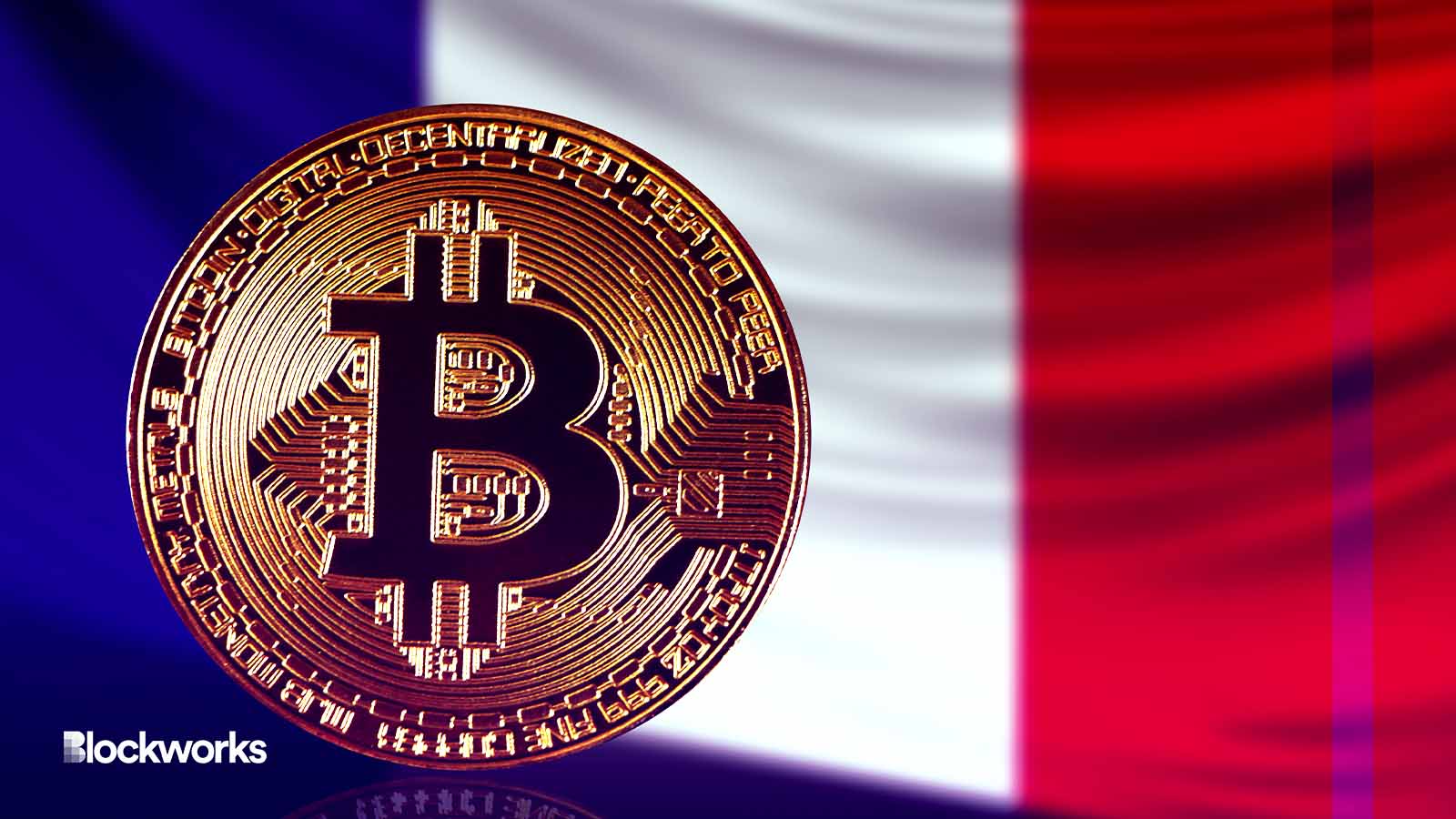Crypto is the future of France, survey confirms
As crypto companies move into France after the passage of MiCA, 40% of French Gen Z crypto investors report entering space in last six months

Millenius/Shutterstock modified by Blockworks
A substantial portion of young investors have entered France’s crypto market this year. This trend coincides with companies seeking to get involved in the country amid new regulations.
Roughly 8% of internet users aged 18 to 60 in France are involved in the crypto space, according to a survey published by crypto exchange KuCoin Friday. The poll of 500 adults was conducted in May.
Of those crypto users, 31% have spent less than six months in the segment, while 23% have invested in crypto for more than three years.
Younger investors have especially entered the space more recently — roughly 40% of Gen Z crypto investors in France jumped into the space in the last six months.
The interest in crypto among this demographic — considered people aged from nine to 24 — comes despite 60% of Gen Z crypto users earning less than 35,000 euros per year, the study found.
The findings mirror a trend seen in Germany, a separate KuCoin survey in June shows. Forty-one percent of Gen Z crypto investors in Germany started investing in digital assets within the past year. Thirty-four percent of Millennials there invested in crypto for the first time in the past three months.
“Gen Z is fearlessly diving into the crypto market, demonstrating an unprecedented level of interest and adaptability,” KuCoin CEO Johnny Lyu said in a statement. “This younger generation is not just participating, they are shaping the future of the crypto ecosystem.”
Compared to older counterparts, more Gen Z adults seek “quick returns” from crypto and use digital assets for NFT purchases and payments. This generation shows a higher preference for Ethereum than other age groups, with 41% interested in the asset.
The prices of bitcoin (BTC) and ether (ETH) are up roughly 80% and 57%, respectively, since the start of 2023.
A rush to the country after MiCA passage
The reported recent adoption by many younger investors comes in a span during which companies have sought approvals in France ahead of the implementation of the EU’s landmark Markets in Crypto Assets (MiCA) regulation, passed in April.
The measures require crypto asset service providers to register with national authorities to service EU clients.
Read more: EU’s MiCA Framework Could Help Crypto Firms Get Banked
Crypto exchange OKX revealed in May it had filed an application with France’s Autorité des Marchés Financiers (AMF) and Autorité de Contrôle Prudentiel et de Résolution (ACPR) to become a registered digital asset service provider (DASP).
The country offers “a sound and transparent regulatory framework,” OKX said in a May news release. France has positioned itself as the company’s European hub, the company added, due to its ample crypto enthusiasts, experienced traders and available qualified workforce.
CACEIS Bank — a company owned by both Credit Agricole and Santander with roughly $5 trillion in assets under custody — registered as a French DASP last month.
More recently, Societe Generale crypto subsidiary SG-Forge said on Tuesday it had secured approval as a licensed DASP in France. It is “the highest level of regulatory certification currently possible for operations involving digital assets,” a spokesperson told Blockworks.
SG-Forge said in a statement it expects MiCA’s full implementation by the end of 2024.
Get the news in your inbox. Explore Blockworks newsletters:
- The Breakdown: Decoding crypto and the markets. Daily.
- 0xResearch: Alpha in your inbox. Think like an analyst.






